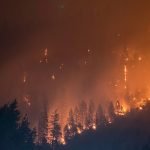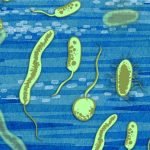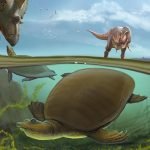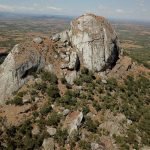U.S. fires four times larger, three times more frequent since 2000
Fires have gotten larger, more frequent and more widespread across the United States since 2000, according to a new University of Colorado Boulder-led paper.
Recent...
What’s Russia’s nuclear option
Ukraine has staunched the Russian invasion of its borders for two weeks now, holding off an army hellbent on occupying its cities even as...
How early Earth got the oxygen?
For the first 2 billion years of Earth’s history, there was barely any oxygen in the air.
While some microbes were photosynthesizing by the latter...
Scientists turn to Neandertals, an extinct human relative, for the answer of lower back...
Examining the spines of Neandertals, an extinct human relative, may explain back-related ailments experienced by humans today, a team of anthropologists has concluded in...
Expedition to highest active volcano unearths clues about life on other worlds
A harsh sun shines down through a cloudless sky, across a vast and unforgiving landscape.
It’s covered in gray rock, giant ice sculptures and expansive...
How the Russia–Ukraine conflict could disrupt food and finance around the world
When Russian military forces entered Ukraine in February, the resulting conflict created a stark humanitarian crisis and the looming fear of global financial upheaval.
With...
This softshell turtle lived alongside Tyrannosaurus rex and Triceratops
A newly described softshell turtle that lived in North Dakota 66.5 million years ago at the end of the Cretaceous Period, just before the...
How early humans lived, traveled and interacted
A new analysis of human remains buried in African archaeological sites has produced the earliest DNA from the continent
This tells a fascinating tale of...
Scientists find the world’s lowest dementia rates in Amazon
A new study reveals that two indigenous groups in the Bolivian Amazon have among the lowest rates of dementia in the world.
Aamong older Tsimane...
Is World War III possible? The next few weeks will tell
With Ukrainian resistance standing its ground and proving formidable against invading Russian forces, it’s possible the ground war waged for the past two weeks...










